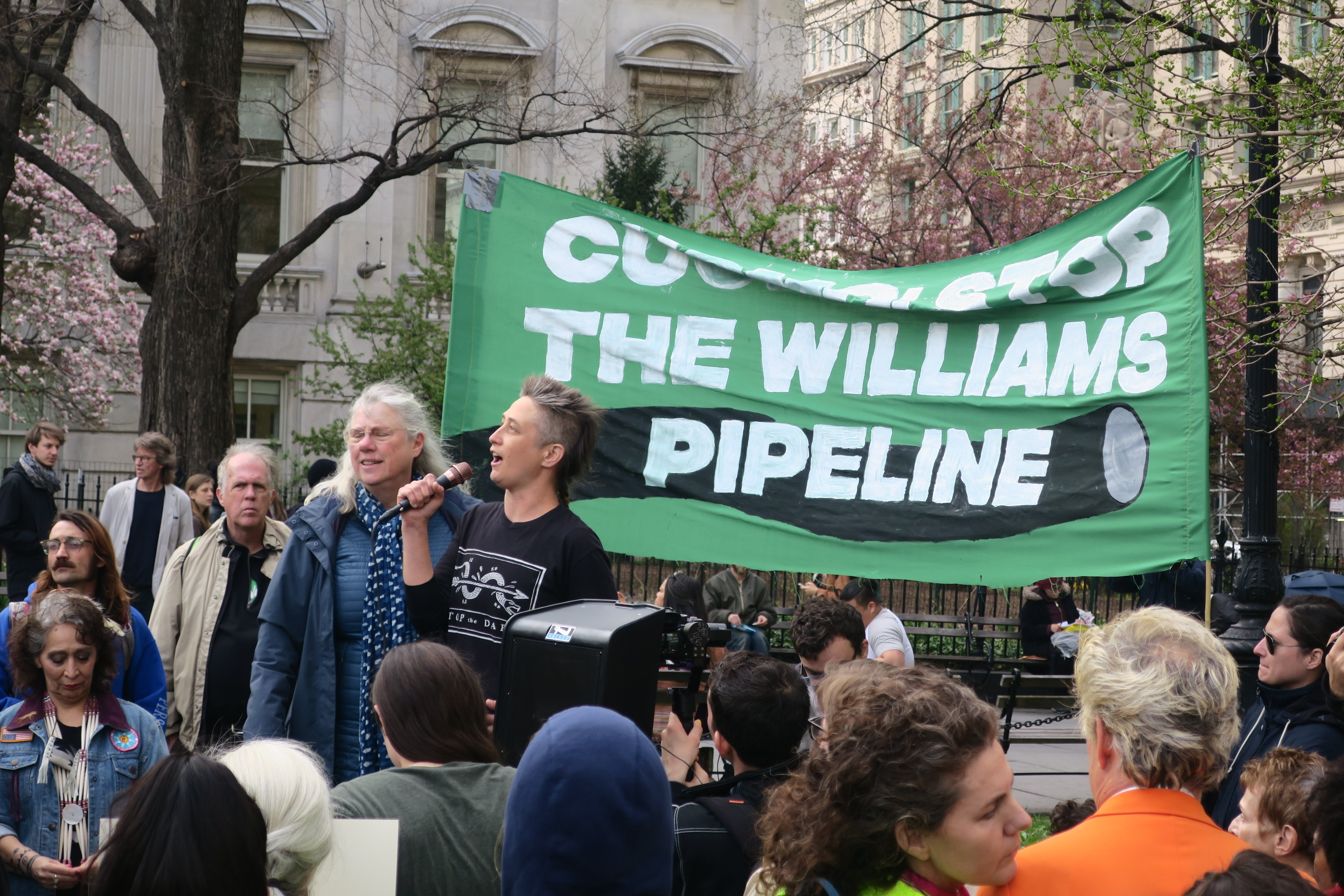
Surfrider’s New York City, Jersey Shore, and Central Long Island Chapters are celebrating the final death knell of an offshore fossil fuel pipeline that was originally proposed in 2017, and was defeated not once, but twice, in 2019 and 2020. As of May 3, 2024, the project known as the Northeast Supply Enhancement (NESE), or “Williams” pipeline is not moving forward.

Above: Noelle Picone, volunteer with the NYC Chapter, was Surfrider's main point of contact on this campaign, and put in hundreds of hours to help defeat NESE.
Even though this project was already defeated, Surfrider and our allies continued to monitor it as the Williams Corporation continued to reapply for certain federal permits. We believed their plan was to move forward with the project once again if there was a political or regulatory opening. They might still do that with a newly named project, but for now, NESE is over.
NESE was proposed to travel through New Jersey, under the New York-New Jersey Harbor, and connect to existing infrastructure off Rockaway Beach in Queens, New York. If built, this pipeline would have supplied fracked gas from facilities in Pennsylvania, despite dire warnings from scientists about the serious impacts to our planet from climate change.

For more than five years, the Surfrider Foundation’s New York City, Central Long Island, and Jersey Shore chapters, along with a coalition of organizations, fought the proposed pipeline, driven by the urgent need to reduce greenhouse gas emissions, as well as other environmental concerns. These included the potential for the pipeline to stir up toxic pollutants on the bottom of the harbor, destroy benthic communities in its path, and negatively impact sensitive species such as sturgeon and whales. Rigorous research shows that the proposed pipeline was not only dangerous, but completely unnecessary.
On May 15, 2020, we celebrated the second denial of state permits that the project required. The New York State Department of Environmental Conservation and the New Jersey Department of Environmental Protection both denied permits for NESE, effectively stopping the project. For more background on the project, see this page, and this blog.

